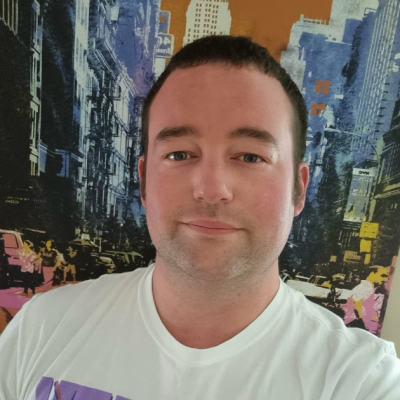Supporting victims and survivors of conversion therapy
In October 2021, the UK Government launched a public consultation into banning so-called conversion therapy. The consultation received a lot of feedback, both from those in support of a ban and those who are against it. The consultation was extended twice and ended in February 2022.

The UK Government has since analysed the results and initially decided that a ban on conversion therapy would come into force, but it would exclude trans people. Since then, there have been conflicting reports suggesting that the ban will be scrapped completely but also that there will be a trans-inclusive ban.
As of March 2023, conversion therapy remains legal in the UK.
What actually is conversion therapy?
Essentially, it’s a form of therapy aimed at curing people of being lesbian, gay, bisexual or trans (LGBT+). To the surprise and shock of many people, it is still widely practised in the UK and it is currently legal. This means that therapists and certain institutions are able to carry out this damaging form of therapy in order to cure people of being LGBT+. It is also widely practised in some other countries around the world, such as the USA, although an increasing number of countries are banning it.
Some people choose to undergo conversion therapy, although the reasons why they would want to change a natural part of who they are is often due to the environment they have been in that has led to them having feelings about curing their sexuality or gender identity. Then there are many other people who are forced or coerced to undergo conversion therapy.
All of the main therapeutic membership bodies in the UK are clear in their codes of ethics that conversion therapy is a damaging practice and that their members must not conduct it. Members who carry out conversion therapy will be quite rightly struck off by their membership body. There is also a Memorandum of Understanding that a number of therapeutic membership bodies have signed up to. Again, it is about making it clear that conversion therapy is a damaging practice and has no place in society.
Sadly, that doesn’t prevent conversion therapy from happening. Indeed, in my therapy work, I’ve supported victims and survivors of conversion therapy, who have been psychologically damaged by the process and have sought out an affirmative therapist who accepts their identity and does not believe they need to change.
A recent open letter from over 2,500 church leaders referred to LGBT+ as ‘defective’ and was against a ban on conversion therapy. I was disappointed, although not surprised, to see a number of church leaders local to me had signed the letter. I also noted that some of those churches are places where I know conversion therapy is happening, as I’ve supported victims who have been subjected to it at those places.
It's not just churches offering conversion therapy though, and there are many churches that support LGBT+ identities and support a ban on conversion therapy. There are also therapists in private practice who carry out conversion therapy and push their world views on to vulnerable clients who need affirmative therapy, not conversion therapy.
As for what a ban looks like, we will have to wait and see what the UK Government announces, if indeed an announcement comes. It is likely there will be exemptions, such as religious exemptions where conversion therapy will be allowed to continue under the guise of guided prayer. That would be unfortunate, given where much of the damaging conversion therapy takes place. However, any kind of ban is better than no ban and a step in the right direction.
One positive is the stance of many therapeutic membership bodies and the increasing availability of LGBT+ affirmative therapist training. These are also steps in the right direction and will educate therapists on what conversion therapy is, how damaging it is, and why it must not be offered or practised.
Society also appears to be largely in favour of a ban on conversion therapy. It’s now in the hands of the UK Government and, hopefully, they will do the right thing for LGBT+ people who are in need of affirmative therapy to support exploration and acceptance of sexual orientation and gender identity.
How can therapists support victims of conversion therapy?
In the meantime, there is positive work to be done by LGBT+ affirmative therapists. When supporting victims of conversion therapy, which is proven to be physically and psychologically damaging, in addition to having long-term repercussions for the victim, it’s important to:
- Listen to the experiences of the victim or survivor. Hear about what conversion therapy was like for them. Victims and survivors may not have the same experience. Yes, it may be horrific and psychologically damaging, but conversion therapy can take different forms and impact victims in different ways.
- Affirm that you are providing a safe space and that you wholly accept the client’s identity and will never seek to change who they are. Reinforce that you are a trusted person and that clients can being their whole selves to therapy.
- Support the victim or survivor to work through the trauma and confusion they may be feeling, while recognising your level of skill and confidence in working with these presenting issues. Make a referral to a more equipped therapist if you need to.
- Ensure you have knowledge of LGBT+ terminology and identities.
- Ensure you understand what conversion therapy is and the damage it does.
- Work within your membership organisation’s code of ethics.
With many horror stories of conversion therapy in the UK, and indeed in other countries around the world, LGBT+ affirmative therapists have a big part to play in helping victims to heal and accept their identity.

Find a therapist dealing with LGBTQ+ counselling
All therapists are verified professionals



